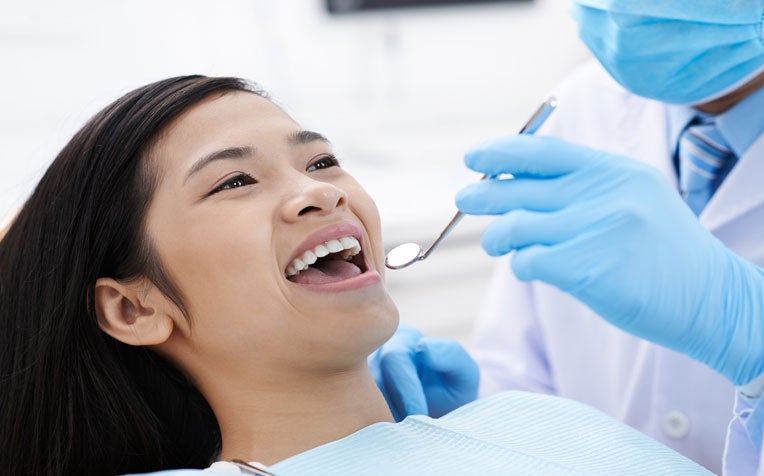
Dental clearance can help prevent harmful bacteria from causing infections.
Your mouth can harbour a few hundred types of bacteria. While some are beneficial, others are known to promote tooth decay and gum disease.
These harmful types of oral bacteria can also enter the bloodstream and travel to organs distant from the mouth, such as the heart, and cause serious health complications.
Undetected dental infection can be particularly threatening if you are undergoing heart surgery, or receiving chemotherapy for cancer.
For these reasons, you may need to get clearance from a dentist before you undergo certain cardiac and cancer treatment procedures.
“Dental clearance is especially important prior to cardiac valve replacement surgery and radiation treatment for head and neck cancer,” says Dr Soong Poh Luon, Consultant, Department of Oral and Maxillofacial Surgery, National Dental Centre Singapore (NDCS), a member of the SingHealth group.
Dental clearance before heart surgery
Dental clearance before cardiac valve replacement surgery is necessary to check for, and eliminate, any present or potential sources of infection which may enter the bloodstream and travel to the surgery site, causing subsequent complications such as infective endocarditis which is potentially life-threatening.
Dental clearance serves another purpose. After cardiac valve replacement, patients are usually prescribed anti-coagulant drugs to prevent blood clots. However, this therapy also increases the risk of excessive bleeding during dental treatment. Fixing any dental problems in advance will help prevent the need to disrupt your anti-coagulation therapy which often requires hospitalisation.
“Prior dental clearance is required to reduce the necessity for invasive dental treatment after cardiac valve replacement surgery,” says Dr Soong. “This minimises risks from complications, treatment costs, stress and inconvenience.”
Dental clearance before radiotherapy for head and neck cancer
You will need a clean bill of dental health before undergoing radiotherapy for head and neck cancer.
“Saliva serves to lubricate the mouth and protect the teeth. Radiotherapy for head and neck cancer can also affect the salivary glands, reducing saliva production and thus promoting tooth decay,” explains Dr Soong.
In addition to tooth decay, radiotherapy treatment for head and neck cancer has other potential oral side effects such as:
- Mouth sores or ulcerations (mucositis)
- Dry mouth
- Reduced opening (trismus)
- Bone death (osteonecrosis)
A dental examination for clearance before radiotherapy will check for sources of present or potential infection, such as:
- Tooth decay
- Gum disease
- Non-vital teeth and dental abscesses
- Retained root
- Impacted teeth
“By checking the oral health of head and neck cancer patients before radiotherapy, providing them the necessary information and treatment, and educating them on management strategies, the impact of oral side effects of radiotherapy can be minimised,” says Dr Soong.
Read on for more information regarding dental clearance before chemotherapy, general anaesthesia and treatment with bisphosphonates.
Ref: Q15
Contributed by














 Get it on Google Play
Get it on Google Play